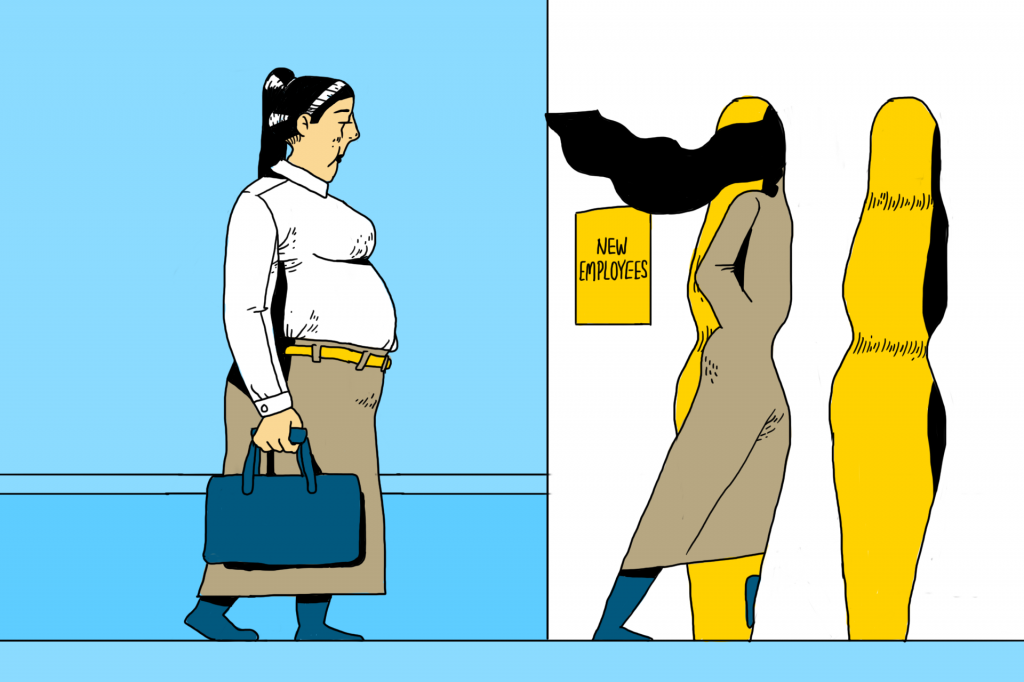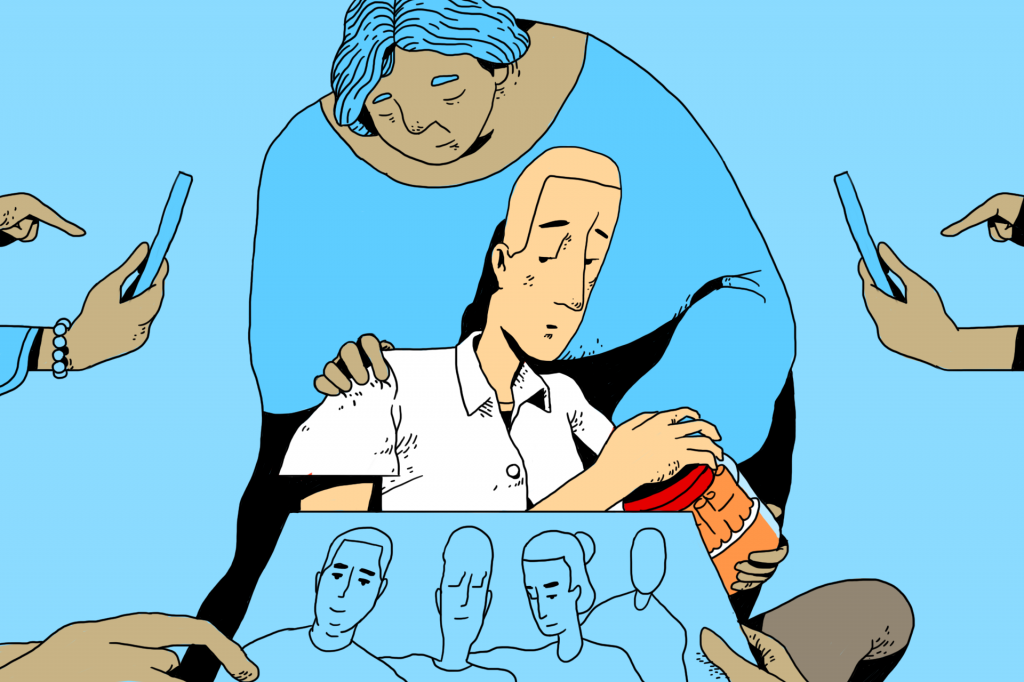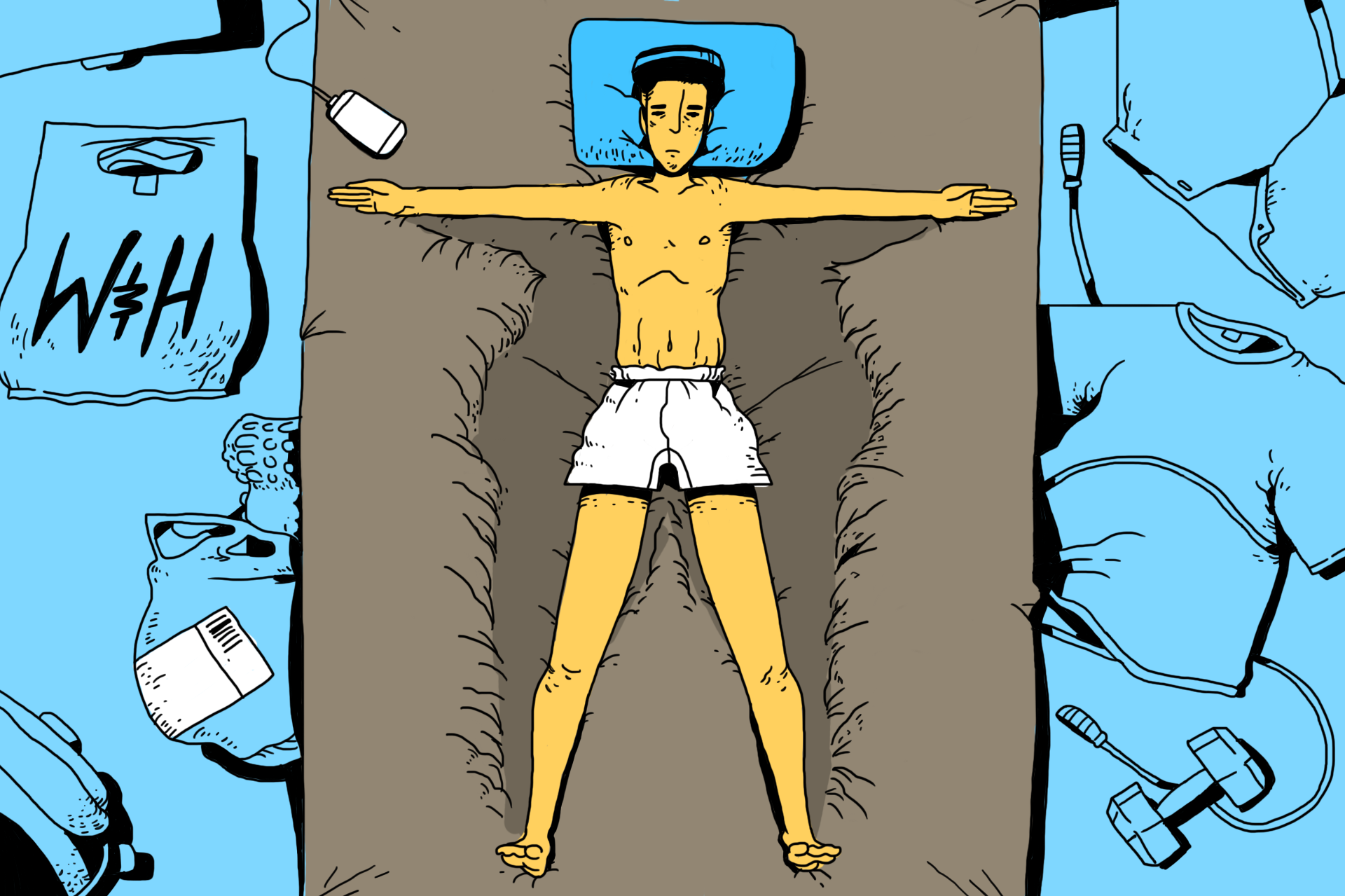‘Before’ and ‘after’ versions of someone are placed next to each other. In the former, they look fat, tired, and miserable; in the latter, they’re fit, lively, and all smiles.
The message is obvious: life after weight loss is nothing but awesome.
Nicolette Tan shares that if she hadn’t lost enough weight to go from a 36 inch waist to a 28 inch one, “I wouldn’t have discovered or done a lot of things.”
“I wouldn’t have seen all the beauty of the Italian countryside around Lago Maggiore on bike. I wouldn’t have hiked up the Slovakian High Tatrys mountains. I wouldn’t have enjoyed exploring a whole bunch of places on foot as I do now,” she says.
Yet life as an ex-fatty (her words, not mine) isn’t all fun, games, and freedom either.
Here’s why.
Nicolette, who realised she has a compulsive eating disorder, worries all the time about regaining the weight she’s lost.
“Food is a part of everyday life. You can take cigarettes away from a smoker, but you can’t deprive a person of food,” she says, pointing out that unlike other addictions, you can’t just quit cold turkey.
For Andrew Lee, who’s in his mid-20s, slimming down was a painful process. 6 years ago, he had about 70% of his stomach surgically removed. This severely limited what he ate, and for a long time, he dealt with a range of gastric-related issues. Eventually, he shrank to about a third of his former size.
“I’m very conscious of monitoring and maintaining the present,” he says, “Also, I can’t quite imagine being fat again.”
26-year old Matthew points out that the main thing average people don’t understand is the amount of effort and sacrifice needed to make this change. Apart from exercising and “eating clean,” a lot goes on behind the scenes too.
“Many times, when I tell people I’m on a diet and would rather avoid going to maybe a bar, some will just assume that I’m being difficult or ‘no fun’. In reality, alcohol sets you back quite a bit in your progress.”
2.You realise how superficial people really are.
Whether it’s concern or mockery, your size as a fat person never escapes attention. But as a skinny person, you aren’t constantly reminded that you’re skinny.
At about 1.85m tall, the only thing anyone ever really calls Andrew now is ‘lanky’. When I ask him what he didn’t like about being fat, he rattles off a list: “Confidence, image, clothing options, public transport woes, public and strangers unspoken bias and judgement.”
Matthew echoes this, saying, “The one thing I hated most was when I had to decide whether or not to get on a really crowded lift. Super embarrassing if the overweight siren went off.”
“Being fat is like being permanently stuck in the friend zone,” 34-year old Benjamin tells me.
“When I was younger, people would feel like they can confide in me because they don’t see me as, I guess, a romantic prospect or like a sexual being.”
He gives the example of Jerry from Parks and Recreation, who always plays the goofy character. On one hand it’s great because you always have friends who help you to laugh at something you should feel self-conscious about (your size and weight), but at the same time, you will always just be that fat friend.
How is one not supposed to be cynical about people even after losing all that weight?

Not all fat people are lazy and gross.
This, I’m told, is one of the biggest misconceptions. Matthew, for instance, had a doctor tell him that he’s more prone to gaining weight because he has more “free roaming fat cells … or something”.
At the same time, Nicolette shares her “unpopular opinion”: “Skinny people shouldn’t blindly support body positive campaigns. It’s one thing to support people in gaining confidence in their bodies and abilities, it’s another thing to enable awful lifestyles. For example, Health At Every Size has been hijacked by a bunch of deluded people who believe you can be in full fitness regardless of how fat you are.”
“It’s pretty sad especially whenever you see some morbidly obese person shouting that she’s in perfect health, when you know her body is slowly but surely failing her,” she adds.
4. You do miss being fat.
Andrew describes his previous fat self as being somewhat surreal, like a part of his past that he isn’t sure really happened. But Nicolette tells me about “ex-fatty” friends of hers who have eventually come to miss being fat.
“If your social life has always been based around self-indulgence, losing weight would mean losing your social interactions and lifestyle, and by extension, your identity,” she says, telling me about friends who’ve had to find new social circles after losing significant amounts of weight.
In Matthew’s case, “The one thing I really loved about being fat was being able to eat anything I want without hesitation at any time!”
Now, as someone who has gone from being the ‘fatty’ to being the ‘fit and buff guy’, he says that it’s a constant, conscious effort to stay this way: “Like you need to have the right mentality, motivation etc.”

Andrew says that losing this much weight has been a “dream since forever”. We’ve known each other since primary school, and I used to joke about how I first noticed him not because of how he looked but because of how much he was eating. By Primary 6, he was so heavy that he maxed out the weighing scale which ended at 120 kg.
After losing all that weight, it was amusing for him to notice that he was no longer the head turner and the center of attention whenever he walked into a room. At long last, he learned what it was like to be normal and average.
Yet he hints at the fact that this weight loss has, in some way, affected his romantic life. He got into his first relationship, and admits that being fat would have made the chances of this happening a lot slimmer.
Matthew is more upfront, stating that being in a relationship would “definitely not” have happened if he hadn’t lost weight.
“As much as we talk about inner beauty and what not, physical appearance matters and your chances of being in one is reduced significantly when you are fat,” he says.
Everyone interviewed for this story made it clear that deep down inside, they’re still the same person. Their lifestyles might have changed, but losing weight most certainly hasn’t brought on any ‘new me’ kind of transformation.








